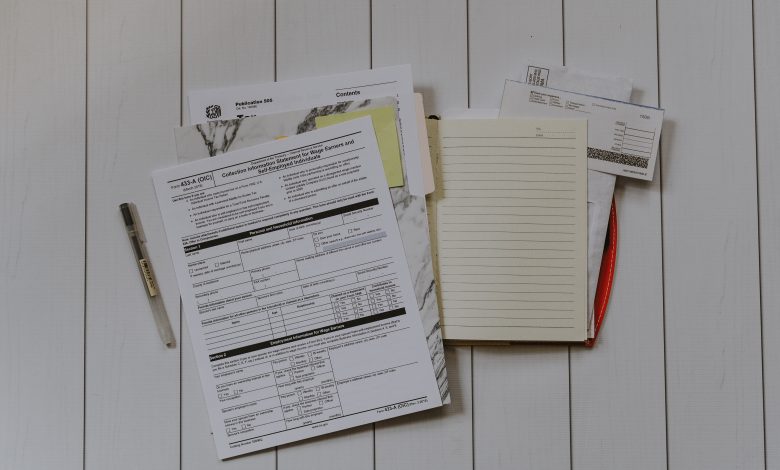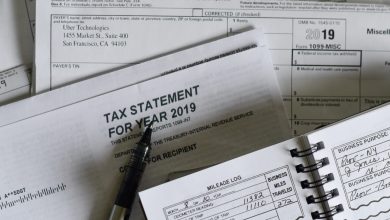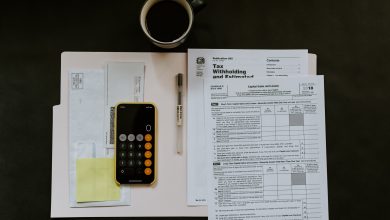What Happens If I Don’t Pay My Taxes?

The process of taxation can be stressful and confusing for a variety of reasons. It can also be quite difficult to know if you need to pay taxes at all if you do not reside currently in the states but are a US citizen. You may be wondering what can happen if you fail to pay your taxes, or if it is even necessary for you. If this is the case, then you need to be careful because there are a number of different potential penalties and consequences that can arise if you fail to pay your taxes or if you do so incorrectly.
Do I Need to Pay Taxes?
There are actually many people who are obliged to pay taxes in the USA but are unaware of that fact. Often, this is because they were born in the US, but moved away as children or at some later stage in their lives. The US recognizes citizenship by birthright in many instances, which means that people born in the country automatically become citizens, simply because they were born there. There are some factors that may mitigate this, but it is usually the case, and the citizenship of the parents or whether or not they were legally a resident in the country often does not change the fact that the child becomes a US citizen.
If you are unsure of your tax status in the US, you need to make sure you find out as soon as possible if there is any doubt in your mind whatsoever. You do not want to risk incurring fines or any of the other consequences that may arise from failing to pay your taxes, which are covered in this article. If you were born in the US and now reside abroad and are unsure if you have tax obligations in the USA, we strongly recommend that you get in touch with the most relevant department of either state or federal government for you, who can give you further guidance and information on this issue.

What Happens If I Don’t File or Pay My Taxes?
There are a myriad of possible consequences that can arise from failing to pay your taxes. What exactly happens depends on your financial situation, your residential status, and other factors, like how much money you owe and if there are any existing concerns regarding your ability to pay your taxes.
If you do not file your taxes at all, then you generally face a fine, which increases with each month that you fail to file your taxes. This is called the failure-to-file penalty. The penalty starts out at 5% of the taxes that you have not paid for the first month, and then increases by 5% subsequently for every month that you fail to file your taxes. The maximum penalty is 25%. If you do not file your taxes, the IRS may actually do so on your behalf. They have access to information regarding your income and taxation status, and then can simply file it in your stead. However, they are unlikely to know about deductions that you may be eligible for, so it is best to take care of it yourself, instead of leaving it to the government.
If you file your taxes but do not pay them, the penalty is similar. You are charged at .05% cumulatively for every month that you do not pay your taxes, and the penalty once again caps out at 25%. However, you can also actually be charged interest on this amount. There are of course more severe penalties the longer you wait to pay your taxes. Not only can you likely miss out on repayments that you may be eligible for, but in a worst-case scenario, the government has the authority to seize your property or even your passport until you clear the air and fulfill your tax obligations.
It is possible to be exempted from such penalties for not filing your taxes on time. For example, you may not actually owe any taxes, and you may also be expecting a refund from the IRS or other department of government. If this is the case, then there are usually not any penalties for you for not filing a tax return, as is it not needed in this instance. The IRS is also generally fairly understanding if you are able to demonstrate that your failure to file or pay taxes on time was due to extenuating circumstances. If it was not the result of neglect on your part, then it is possible for them to remove any penalties that may have been imposed on you as a result of your failure to file or pay taxes on time.
Is It a Crime Not to File My Taxes?
Generally, it is regarded as unlawful to fail to file or pay your taxes in the US. However, this depends to some extent on your intent in this situation, and this is regarded in taxation law and by the IRS as the willfulness element. Essentially, if it is clear that you did not deliberately avoid paying taxes for some reason or that you were not actually aware of your legal duty, then you are unlikely to actually be charged with a crime. For example, if you can demonstrate somehow that you did not know you had an obligation to pay taxes in the US, then you are usually able to avoid the most serious punitive charges for failing to pay your taxes.
This is usually demonstrated by a pattern of behavior. For example, if it can be shown that the IRS has attempted to inform you of your duties or obligations to pay taxes or that you have communicated with them in some way, then you were most likely aware of your responsibility and chose not to act upon it. Conversely, if you have a condition that affects your cognition or some circumstances during the time in which you were expected to pay your taxes would have affected you substantially, this can be evidence that you were genuinely unaware of your responsibility to pay taxes at that time.

What If I Have Not Paid Taxes for Several Years?
The longer you have gone without paying or filing your taxes, the worse the complications are likely to be. For example, a worst-case scenario may be that the IRS feels it is appropriate that you face jail time as a result of your failure to fulfil your tax obligations, though this is generally reserved for the most serious offences. The amount of time you could be imprisoned for depends on the severity of the offence, both in terms of how long you have gone without paying your taxes and what the amount of unpaid debt is. This is clearly a compelling reason to take issues of taxation very seriously.
However, even if you have substantial outstanding debts that have not been paid for a considerable amount of time, you are not necessarily going to face jail time if you are upfront and honest about it. The IRS generally tries to avoid imprisoning people if at all possible, so if you are aware that you have considerable debts that you owe in the form of taxes, you should consider consulting with a lawyer who specializes in taxation or relevant issues. If you are upfront about what you have done and what you may owe, it is usually possible to avoid some of the more serious ramifications of failing to either file or pay taxes.
If My Taxes Are Outstanding, How Can I Pay Them?
If you have considerable outstanding taxes and are not sure how you can pay them, there are mechanisms in place that can make it possible for you to pay them back without experiencing too much difficulty, especially if your financial situation is somewhat fraught. It is generally possible to negotiate repayment plans, for example, if you are unable to pay your debts to the US government all at once. Usually these payments have to be made either weekly or monthly, and they continue until you have entirely paid back what you owed to the US government.
On the other hand, if you are unlikely to be able to pay back your debts monetarily, there are other types of compromises that can be made in order to ensure that your debts are paid back somehow. Depending on your circumstances, you may be able to negotiate with the IRS to come to some form of agreement where they accept a smaller amount from you to settle your debts in lieu of pursuing some form of punishment or enforcing legal consequences against you. If you don’t think you are in a position to pay back your debts in installments, then consulting with a lawyer who specializes in such issues is your best bet, as they can help you negotiate with the IRS and see if such an agreement can possibly be made on your behalf.



